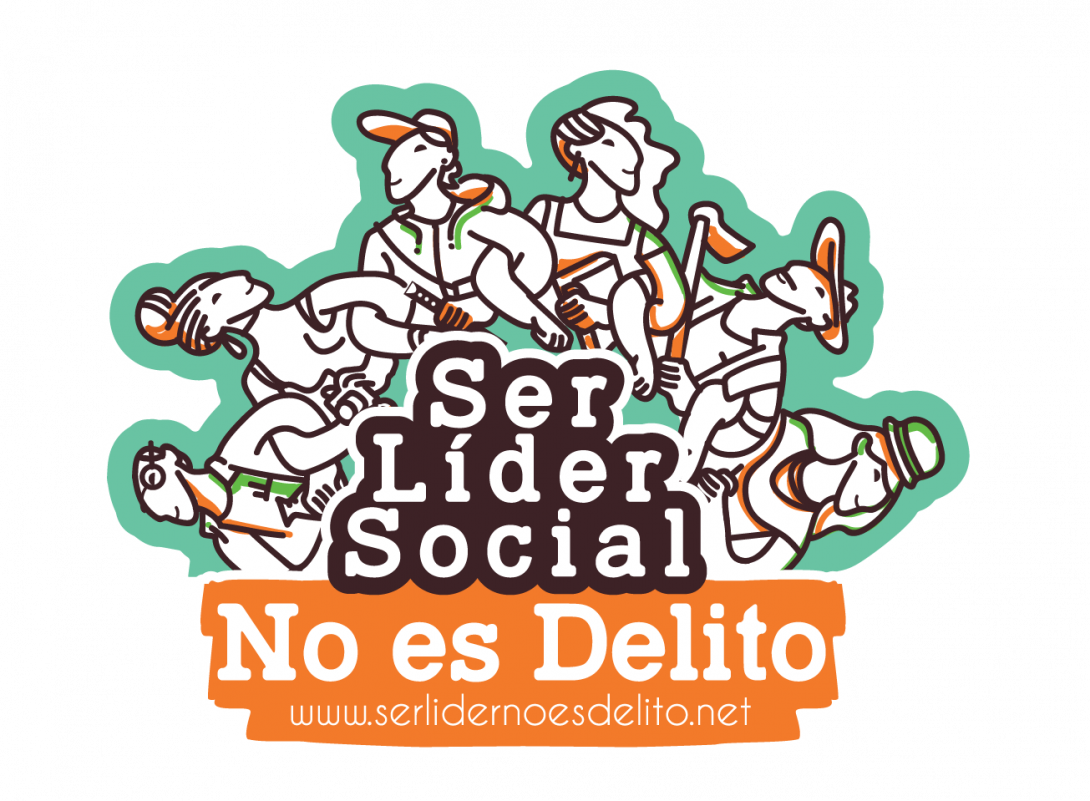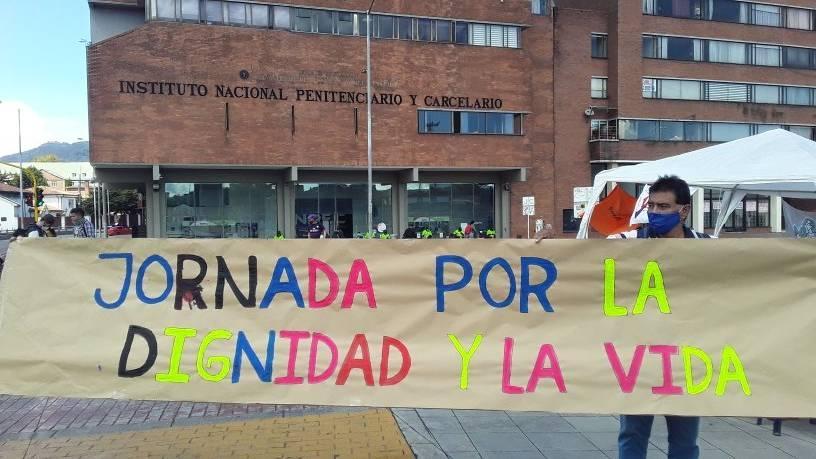PASC is active in the fight against imprisonment and in solidarity with political prisoners.
In Colombia, we work with Equipo Jurídico Pueblos and Comité de Solidaridad con Presos Políticos. We disseminate information about the situation in prisons and the precarious conditions in which prisoners find themselves.
***
The status of "political prisoner”
Political prisoners are imprisoned on the basis of their political stance and/or their actions in opposition to State policies.
Who are the political prisoners?
There are at least three different categories of political prisoner: (1) people criminalized by the State because they belong to the social movement (social leaders or human rights defenders); (2) people criminalized by the State because they live in poor regions and neighbourhoods under the influence of armed actors; and (3) people who belong to guerrilla groups.
According to the Comité de solidarité avec les prisonniers-ères-s politiques (CSPP), 60% of political prisoners are not combatants, but rather trade unionists, human rights defenders, members of popular organisations, etc.

The Ser lider social NO es delito campaign denounces the criminalization of social leaders.
Criminalization is a mechanism of repression by which people and movements protesting against the state, against the exploitation of natural resources and in defense of their economy, way of life, culture and existence are prosecuted in court and often taken to prison on criminal charges. Moreover, in the context of armed conflict, people facing criminal charges are more likely to be victims of other human rights violations, including murder, with complete impunity.
As recalled in the preliminary verdict of the Permanent Peoples' Tribunal on the Canadian Mining Industry, held in Montreal in 2014, states "arbitrarily undermine the foundations of the democratic and social state, they directly criminalize the activity of individuals, activists, community leaders and human rights and environmental defenders who legitimately and peacefully claim the right to self-determination and who oppose violations of their rights and fundamental freedoms. Social movements (often indigenous) that are stigmatized and criminalized for their actions in defense of the territory of the communities affected are demanding a healthy environment, the protection of nature, ecosystems, their livelihoods, water, cultural heritage and the right to decide on the type of local development to be put forward".
In Colombia, the criminalization of social leaders has been a mechanism used by the government against the social movement for too long. Thousands of social leaders have been and still are imprisoned. In doing so, the government has weakened the movement and spread fear amongst opponents.
Social leaders taken to prison generally face charges based on the testimony of informers working for the government. These false witnesses, who are often paid, are hired by the state to confirm that they know the person and to assert that the detainee is linked to an insurrectionary organization or has participated in an act of terrorism with that organization.
Political prisoners are held in several types of prison, but mainly in maximum security prisons. The Valledupar and Combita prisons, for example, where many of these prisoners are held, were created under an agreement with the US Federal Bureau of Investigation, which was involved in the construction of these facilities, the training and management of the guards and the establishment of their internal regulations.

Guerrilla members
Since the Colombian government denies the existence of the armed conflict, it refuses to recognize the status of "political prisoner" and does not hesitate to grant the title of "terrorist" to detainees arrested for their social and political activities. This denial of armed conflict and of the status of prisoner of war or political prisoner enables the government to ignore international agreements governing internal conflicts, such as the Geneva Convention, or international humanitarian law.
Accusations of Rebellion and Terrorism
Rebellion : One who, with use of arms, goes against the constitutional or legal regime in power.
Terrorism : One who terrorizes the community.
The crime of rebellion is punishable by 6 to 10 years of prison. Within the last few years, this accusation is used less and less against guerilla organization members. They are now charged with other crimes like « terrorism », punishable by 40 years in prison. The crime of rebellion is then used to criminalize union activists, students, farmer leaders, natives, afros, human rights defenders, etc. Therefore, the accusation of rebellion is used as a mechanism to criminalize political opposition and social protest, to quiet the members of social movements and civil resistance organizations. It has now become a tool of the Government to lead a political and legal persecution.
The Social and Armed Conflict Within Prisons
Under the pretext of conducting pacific cohabitation and reconciliation experiments, political prisoners are increasingly placed in the same cells as paramilitaries. Paramilitary structures are alive in the prisons, be it with alliances with employees of INPEC or by simple control of the establishment administration.
Organization of Political Prisoners
For this reason, the first claim of political prisoners is to demand they be grouped in the same « patio » (floor or section of the establishment) in order to improve their security conditions and to help their organization within the prison. Political prisoners take part in many committees during their imprisonment like Human Rights Defense Committee, Legal Support Committee, Education Committee and Information Committee, to use this time to perfect their political education and continue their battles for social justice inside the repressive structure. Women’s situation is more difficult because they rarely succeed in being grouped and are spread out in the country.

Living Conditions
Even Colombia's Constitutional Court denounces the fact that the most basic rights are not guaranteed in prisons, among other things, due to omissions by the public authorities, considering that there is a "flagrant violation of a series of fundamental rights of detainees (...), such as dignity, life and personal integrity, the rights to family, health, work and the presumption of innocence".
According to the Court, "the rights to dignity or not to be subjected to cruel, inhuman or degrading treatment or punishment are violated by the overcrowding and poor conditions (...) in detention centres. The rights to life and physical integrity are violated or imminently threatened by the overcrowding itself, by the mixing of all categories of prisoners and by the lack of the required number of guards; the right to the presumption of innocence is violated insofar as defendants are detained with those who have already been convicted. (...) The right to health is violated by the lack of infrastructure in the infirmaries and other health areas, (...) the overcrowding of the prisons, the poor water and sanitation services and the lack of guards to make referrals to hospitals (Constitutional Court of Colombia, Decision T-153 of 28 April 1998).
In October 2001, an international Commission carried out a visit to 15 prisons of the country, three of which were women’s prisons. The Commission denounced cases of corruption and degrading treatments happening in many establishments, and made the Colombian Government responsible for that fact in the prisons where the rights to life and human dignity, health, education, food and legal defense are violated.